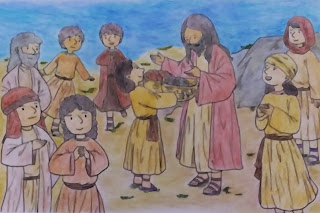And death shall have no dominion.*
Dead men naked they shall be one
With the man in the wind and the west moon;
When their bones are picked clean and the clean bones gone,
They shall have stars at elbow and foot;
Though they go mad they shall be sane,
Though they sink through the sea they shall rise again;
Though lovers be lost love shall not;
And death shall have no dominion.
And death shall have no dominion.
Under the windings of the sea
They lying long shall not die windily;
Twisting on racks when sinews give way,
Strapped to a wheel, yet they shall not break;
Faith in their hands shall snap in two,
And the unicorn evils run them through;
Split all ends up they shan't crack;
And death shall have no dominion.
And death shall have no dominion.
No more may gulls cry at their ears
Or waves break loud on the seashore;
Where blew a flower may a flower no more
Lift its head to the blows of the rain;
Through they be mad and dead as nails,
Heads of the characters hammer through daisies;
Break in the sun till the sun breaks down,
And death shall have no dominion.*
--Dylan Thomas, 1933 [Welsh; now in public domain]
*Romans 6:9-- "Since Christ has been raised from the dead, the dead die no more; death has no dominion over him.
.jpg) |
| "Supermoon" Rising Over a Cemetery in Missouri |




.jpg)
.jpg)


.jpg)

.jpg)



